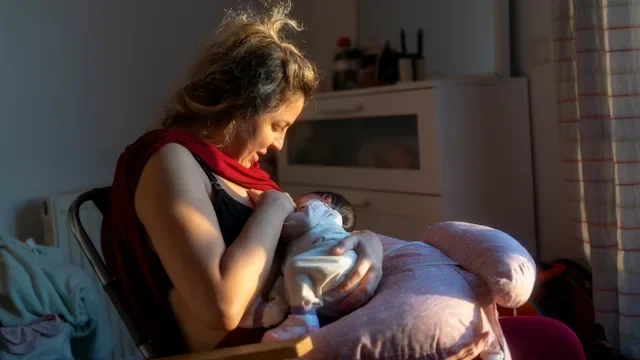Key takeaways:
In some states in the U.S., healthcare providers are required by law to report substance use during pregnancy. Such laws may discourage people from seeking prenatal care.
The laws can vary widely from state to state in terms of reporting requirements and consequences of reporting.
There are confidential resources available for people to consult if they are uncertain about how to get medical care during pregnancy.
If you’re pregnant and use substances, you might be nervous about getting medical care. This is understandable. Some healthcare providers are required to report drug use during pregnancy. You may feel torn about moving forward. How do you care for your pregnancy and avoid legal trouble?
Healthcare providers have been pushing for changes in state laws. Research has shown that punishment doesn’t help. Good medical care and treatment is what works. Pregnancy and childbirth are also safer when parents get support and treatment.
Here, we’ll explain what we know about healthcare providers and reporting laws. We’ll go into detail about who reports and the requirements. Then, we’ll explain the policies and laws that providers need to follow and what can happen when they report. We’ll close by offering ways to get support and learn about your local laws.
Search and compare options
Which healthcare providers have to report drug use during pregnancy?
Healthcare providers are mandated reporters. This means that if they suspect child abuse or neglect, they must report it to the child protective agency in their state. And in some states, drug use during pregnancy is part of this law. Mandated reporters are people who have regular contact with children. They may also be organizations like schools. Mandated reporters may include:
Teachers and school staff
Healthcare providers such as doctors, nurses, and other staff
Counselors
Pastors
Mental health counselors
Social workers
Childcare providers
Law enforcement officers
Medical examiners
In some states, individuals and groups are required to report. They may include:
Commercial film processors
Computer technicians
Probation and parole officers
Camps and after school programs
Any person suspecting harm, regardless of their job
States have different laws about drug testing and reporting. Healthcare providers need to follow the laws in their state. At the same time, they know that many people avoid medical care during pregnancy to avoid getting in trouble.
This puts pregnant parents who use substances in a tough spot. Some parents have a good relationship with their providers. They may be comfortable opening up even if their provider has to make a report. But not everyone will feel safe. Some people don’t have a regular provider. Others have had bad experiences with healthcare. These parents often avoid medical care.
Below, we'll explore why the laws are in place and how to get help. There’s no quick solution, but being informed can help.
What are the laws involved with pregnancy and substance use disorders?
Every state has laws about testing and reporting for drug use during pregnancy. Healthcare providers keep these laws in mind when giving medical care. Here’s how the law affects pregnancy and substance use disorders.
Reporting policies
Reporting policies vary between states. It helps to understand the requirements in your state. This information can help with your decision about whether to see your healthcare provider.
Who is reported? Depending on the state, the provider may report the parent, the infant, or both.
What causes a provider to report? In some states, a provider reports if a parent has a positive blood test for substance use. Other states do not require test results to make a report. In these states, if providers know of substance use or see symptoms, they must report it.
Consequences of reporting
The act of reporting is the focus of these laws. Some states offer protection for parents and healthcare providers. For example, a few states don’t allow reports to be used in criminal cases against a pregnant parent. And providers making reports in good faith can make mistakes. If a positive report turns out to be incorrect, some states protect providers from being sued.
However, providers are required to report suspected child abuse or neglect. They may face consequences if they don’t. Some states include substance use in these laws. Suspected substance use may lead to legal issues for pregnant parents.
State laws can change from year to year. Be aware of your state’s laws to stay current.
Treatment referrals
There is a positive aspect to some reporting laws. In many states, these laws require providers to make treatment referrals. This requirement may help pregnant parents get substance use treatment sooner than they might on their own. Some policies are more helpful to parents than others. But they recognize that pregnant parents need help to make positive changes.
Many providers know that treatment is vital for better pregnancy outcomes. Evidence shows that this is true for pregnant parents using opioids. Medication for opioid use disorder (MOUD) — also known as medication-assisted treatment (MAT) — is a primary treatment for opioid misuse. Not all providers are aware of the benefits of MOUD. And some hesitate to give medications to pregnant parents. But research shows that MOUD is safer than opioid misuse. This type of referral can help both pregnant parents and babies.
How do pregnant parents get help without legal problems?
The truth is that there’s no clear answer to this question. Each state has its own approach to the law, and it’s understandable if you feel confused or anxious. But what we do know is that treatment and support help more than punishment. There are additional information options available:
Healthcare providers want pregnant parents to seek medical care instead of getting in legal trouble. Parents can get help for both their pregnancy and substance use. But not all state governments see it this way.
Some states have laws to discourage substance use during pregnancy. These laws use fear of legal trouble to change behavior. They mean to turn pregnant parents toward treatment. But research shows that this approach has the opposite effect.
Lack of care is risky for babies
Instead of seeking help, many pregnant parents hide their substance use. They may also avoid getting care. Parents keep their secret to avoid getting caught. But this puts both them and their babies at risk.
Babies born to parents using substances may have short-term substance withdrawal. This is called neonatal abstinence syndrome (NAS). The odds of a baby being born with NAS are higher in states with harsh laws. States may see these laws as a quick solution. But the outcomes can cause more harm than good.
Uncertainty about the law
Research indicates that people should not be punished for substance use during pregnancy. Rather, they should receive appropriate perinatal care and substance use treatment. Accordingly, some healthcare providers are advocating for changes to state laws. But for now, there is still uncertainty.
Get information and support throughout your pregnancy
Pregnancy and substance use is a stressful combination. And you may feel concerned about getting help when you don’t want to get in trouble. But getting treatment is good for you and your unborn baby. It’s a personal decision to seek help, but know that you aren’t alone. Here are some tips and information to help you move forward.
Find laws about pregnancy and substance use in your state
The laws about pregnancy and substance use in your state are an important part of the picture. To find this information online, do a search such as “Colorado state law pregnancy drug use.” But also check your state government’s website. Search for a specific law, or find contact information to ask questions:
Click on your state on this map at Congress.gov.
Search online by entering phrases such as “Nevada state government” or “Maryland state laws.”
Find guidance, answers, and treatment
The SAMHSA hotline at 1-800-662-HELP (4357) is free and confidential. Ask questions about addiction and finding treatment.
Learn about free legal support and advocacy for pregnant parents with substance use issues.
Search for “lay legal advocacy” in your state. Such legal advocacy hotlines are often free and confidential and allow you to ask questions about state laws.
The bottom line
Healthcare providers want pregnant parents to get the best care possible. But many are legally required to report substance use. If you are a pregnant parent struggling with substance use, you may be unsure about your next step. While there is no easy answer, there is support and help available. You are not alone.
If you or someone you know struggles with substance use, help is available. Call SAMHSA’s National Helpline at 1-800-662-HELP (4357) to learn about resources in your area.

Why trust our experts?


References
American College of Obstetricians and Gynecologists. (n.d.). Substance use disorder in pregnancy.
Angelotta, C., et al. (2017). Criminal charges for child harm from substance use in pregnancy. The Journal of the American Academy of Psychiatry and the Law.
Centers for Disease Control and Prevention. (2021). Treatment for opioid use disorder before, during, and after pregnancy.
Child Welfare Information Gateway. (2019). Mandatory reporters of child abuse and neglect.
Congress.gov. (n.d.). State legislature websites.
Darlington, C. K., et al. (2021). Revisiting the Fetal Assault Law in Tennessee: Implications and the way forward. Policy, Politics, & Nursing Practice.
Faherty, L. J., et al. (2019). Association of punitive and reporting state policies related to substance use in pregnancy with rates of neonatal abstinence syndrome. JAMA Network Open.
Jarlenski, M., et al. (2017). Characterization of U.S. state laws requiring health care provider reporting of perinatal substance use. Women's Health Issues.
National Advocates for Pregnant Women. (n.d.). Pregnancy and drug and alcohol use.
National Advocates for Pregnant Women. (2021). Medical and public health group statements opposing prosecution and punishment of pregnant women.
Stone, R. (2015). Pregnant women and substance use: Fear, stigma, and barriers to care. Health & Justice.














